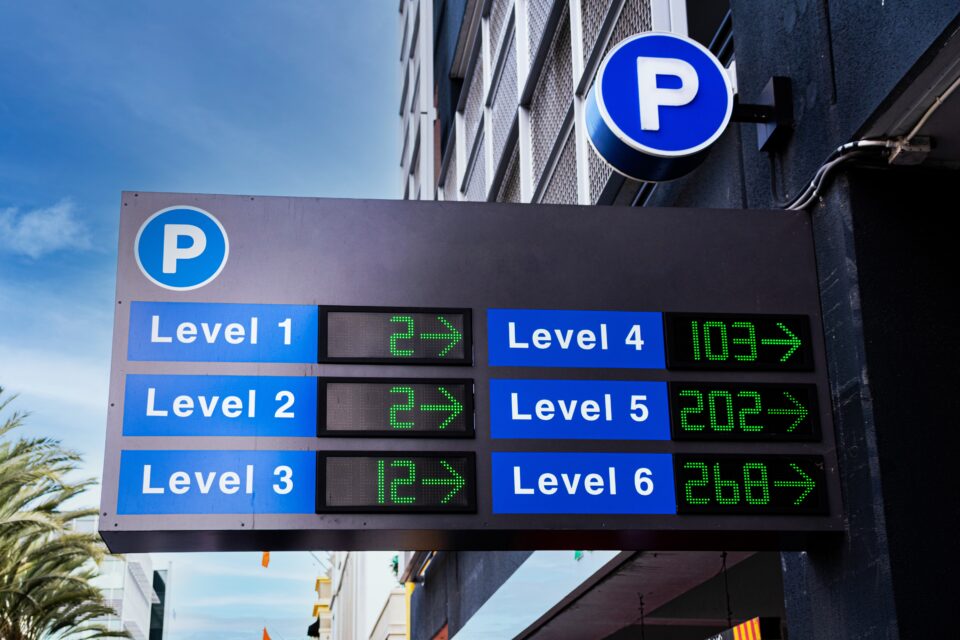How to Leverage Technology for More Efficient Parking Management
June 26, 2023

Advancements in technology and smart parking systems are revolutionizing the way we manage parking spaces. By incorporating sensors, real time information, and data analytics, these systems provide a stress-free parking experience while promoting efficiency, limiting congestion, and incorporating sustainable practices.
Let’s look at the types of smart parking systems, their benefits, and how they can be used for more efficient parking management!
Parking Enforcement
Smart parking can play a crucial role in effective parking enforcement. Today, sensors can detect vehicles entering restricted areas – or staying beyond the allowed time limit – and trigger automated alerts. Parking attendants, or the proper authorities, can then be notified immediately, allowing them to take the proper action. Integration of license plate recognition technology also simplifies ticketing enforcement processes, ensuring compliance and enhancing overall security.
Real Time Parking Availability
One of the advantages of smart parking systems is the ability to provide real time information on parking availability. With sensors embedded in parking spaces, these systems can detect the presence of vehicles and send this data to a centralized platform. Information can then be made accessible to drivers via mobile apps or digital signs – enabling them to locate and reserve parking spaces in real time. By reducing the time spent searching for parking, these smart parking systems lessen congestion and improve traffic flow.
Enhanced Guest Experience
In addition to offering parking availability information, drivers can also have a convenient parking experience by using mobile apps or web-based platforms. Not only does today’s technology allow guests to reserve spots in advance and navigate to their reserved parking spaces from their phones but features like contactless payment options and license plate recognition streamline the payment process. This eliminates the need for physical tickets or cash. These advances save on time and staffing while enhancing customer satisfaction and loyalty.
Optimized Space Utilization
Smart parking systems use analytics to find the best usage of your parking spaces. By collecting and evaluating historical and real time data, systems can see patterns, such as peak parking hours, the popular parking locations, and length of stay. This information enables parking operators to make informed decisions regarding pricing strategies, allocation of spaces, and when planning for capacity. Overall, this leads to better space utilization, higher revenue, and elevated levels of customer satisfaction.
Sustainability
Finally, by lowering the time spent searching for parking and optimizing space utilization, smart parking systems contribute to reducing traffic congestion and carbon emissions. When drivers can quickly locate available parking spaces, they minimize unnecessary driving, which leads to less fuel consumption and air pollution.
It’s true that smart parking systems are revolutionizing the parking industry, bringing efficiency, convenience, and sustainability. By providing up to date parking availability, optimizing space utilization, enhancing user experiences, enabling efficient enforcement, and contributing to environmental goals, these systems offer great benefits for parking operators and their guests.